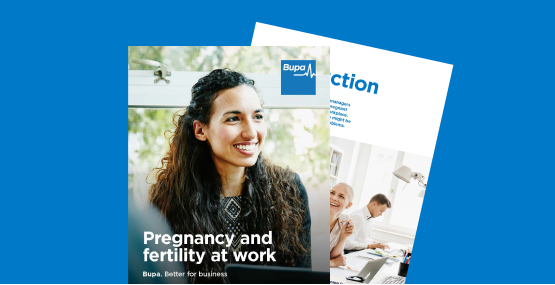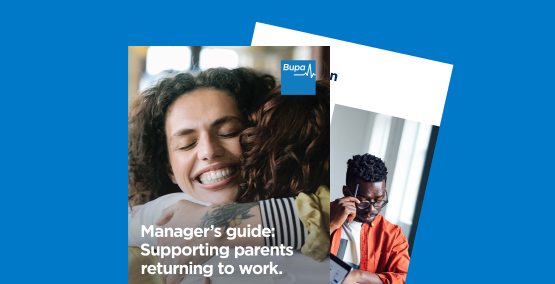How parenting can impact mental health
Deciding it’s time to start a family is a major life moment. But sometimes, feelings of elation and excitement can be interwoven with negative emotions. For example, anxiety, depression, and self-doubts.

Charlotte Gentry, Founder of The IVF Network, says,
“These feelings are often unexpected, and can be extremely challenging. But they are not unusual.”
As many as one in five women experience mental health problems. Most commonly, depression or anxiety, during pregnancy or shortly after the birth.1
And while women with a history of poor mental health are at increased risk, this can often be prevented with the right support.
Changing relationships
Triggers can include pregnancy complications, worries about changing relationships at home and at work, anxiety that something will go wrong with the pregnancy, fear of childbirth and feelings of inadequacy around parenting.
However, Louise Howard, Professor in Women's Mental Health at the Institute of Psychiatry, Psychology & Neuroscience at King’s College London say's
“This period as an opportunity to improve women’s long-term mental health.
“Pregnancy is a time when women are in contact with many health professionals making it an ideal window of opportunity to identify and treat mental health problems.”2
Men’s mental health
Charlotte says,
“It is important to acknowledge that men can also experience poor mental health at this time. During pregnancy, men have even less control of the outcome. Often they feel like a passenger on the journey.”
Around one in ten men experience anxiety or depression during their partner’s pregnancy or following the birth.
Studies show that most are reluctant to talk about their feelings or seek help.3
Charlotte says,
"Many question the validity of their feelings, or want to prioritise the needs of their partner, so these mental health issues often go undiagnosed. Men are also less likely to express how they feel so keep their emotions bottled up which isn’t healthy."
"This can not only undermine the couples’ relationship, there is also evidence that perinatal depression and anxiety in fathers can negatively impact memory and performance at work."4,5
Minimise impact
Charlotte adds,
“Being able to access Cognitive Behaviour Therapy (CBT) and other tools such as finding the right therapist to support mental health and wellbeing will help to minimise the impact of parental anxiety.
“However, studies suggest this should be framed around fatherhood and align men’s self-care with their role as the supporter and protector. Rather than focusing on mental health or mental illness.”6
Depression and anxiety
Infertility can also undermine mental health. Studies suggest that:
Almost one in five men (19%) experience anxiety.
and 17% struggle with depression.7
Similarly, a study in women attending an infertility clinic found that 40% had been diagnosed with depression, anxiety, or both.8
Charlotte says,
“Addressing these issues is important as there does appear to be some truth to the old wives’ tale that psychological factors impact pregnancy rates as positivity and a calm persona help to determine the health of the baby.
“Hair samples taken from women undergoing fertility treatment show a clear correlation between pregnancy rates and levels of the stress hormone cortisol.”9
Flexible hours
When couples need assisted reproductive technology to start a family, there may be additional worries around the cost and likely success of treatment.
Charlotte says,
“Over this period, employees may need time off or more flexible hours. They would benefit from being able to access wellness and mental health support. Having systems and policies in place to accommodate colleagues sends a clear signal that they are valued.
“It’s also important to be aware that adoptive parents sometimes struggle in the first weeks and months after a child’s placement.”
“It’s estimated that 11 to 12% of adoptive parents experience post adoption depression (PAD) and are surprised to find themselves experiencing depression and other negative emotions when they finally have a child.10
Business case
Forward-thinking organisations are already embedding family-friendly policies. Google has recently enhanced benefits for UK employees and provides funded IVF, elective egg freezing and support for adoption and surrogacy, because “there are many ways to have a family.”11
And it makes sound business sense.
The Unicef report, Business and Family-Friendly Policies, points out,
“Many businesses are recognising that family-friendly policies can contribute to achieving gender equality. And therefore, business profits. By enhancing the recruitment and retention of female employees.12
“There is increasing evidence that workers seek greater work-life balance.”
It concludes, “For businesses competing for talent, offering better work-life balance and family-friendly policies can enhance competitiveness to attract labour.”

Company values
Charlotte concludes,
“Family-friendly policies can also reinforce company values around diversity, inclusion and sustainability, which are increasingly important for both employees and customers.”
To achieve this, Unicef’s advice13 to businesses is to:
Implement a comprehensive approach to family-friendly policies, supported by relevant policies.
Develop robust monitoring systems to ensure policies are effective and contribute to the wellbeing of working parents and their children.
Champion family-friendly policies across industry standards and through supply chains.
Resources from the Workplace Health and Wellbeing Academy

Manager’s guide: Pregnancy and fertility at work.

Manager’s guide: Supporting parents returning to work.
1 Royal College of Psychiatrists, November 2018.
2 Kings College London, May 2022.
3 National Library of Medicine, Darwin Z, Galdas P, Hinchliff S, Littlewood E, McMillan D, McGowan L, Gilbody S; Born and Bred in Yorkshire (BaBY) team. Fathers' views and experiences of their own mental health during pregnancy and the first postnatal year: a qualitative interview study of men participating in the UK Born and Bred in Yorkshire (BaBY) cohort. BMC Pregnancy Childbirth. 2017 Jan 26;17(1):45. DOI: 10.1186/s12884-017-1229-4.
4 Richard Fletcher, Craig F. Garfield, Stephen Matthey, Fathers’ Perinatal Mental Health, 24 April 2015, DOI: 10.1002/9781118509722.ch10Cita
5 National Library of Medicine, Baldwin S, Malone M, Sandall J, Bick D. A qualitative exploratory study of UK first-time fathers' experiences, mental health and wellbeing needs during their transition to fatherhood. BMJ Open, September 2019, DOI: 10.1136/bmjopen-2019-030792.
6National Library of Medicine, Darwin Z, Galdas P, Hinchliff S, Littlewood E, McMillan D, McGowan L, Gilbody S; Born and Bred in Yorkshire (BaBY) team. Fathers' views and experiences of their own mental health during pregnancy and the first postnatal year: a qualitative interview study of men participating in the UK Born and Bred in Yorkshire (BaBY) cohort. BMC Pregnancy Childbirth. 2017 Jan 26;17(1):45. DOI: 10.1186/s12884-017-1229-4
7 BMC Public Health, Prevalence of depression in infertile men:a systematic review and meta-analysis, 2023, DOI: 10.31887/DCNS.2018.20.1/klrooney.
8 National Library of Medicine, Rooney KL, Domar AD. The relationship between stress and infertility. Dialogues Clin Neurosci. 2018, DOI: 10.31887/DCNS.2018.20.1/klrooney.
9 National Library of Medicine, Rooney KL, Domar AD. The relationship between stress and infertility. Dialogues Clin Neurosci. 2018, DOI: 10.31887/DCNS.2018.20.1/klrooney.
10 National Council for Adoption, August 2021.
11 Personnel Today, March 2024.
12 UNICEF (PDF, 0.04MB), 2019.
13 UNICEF (PDF, 0.04MB), 2019.


